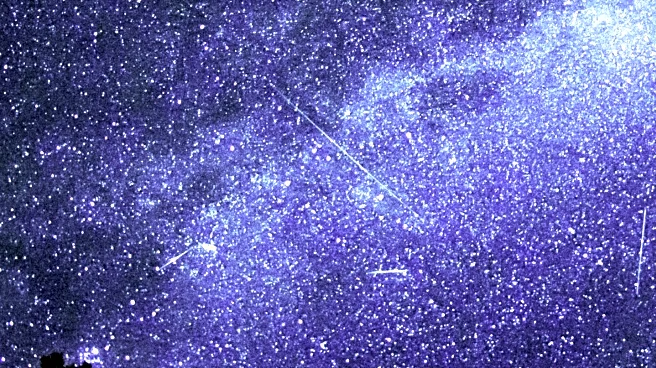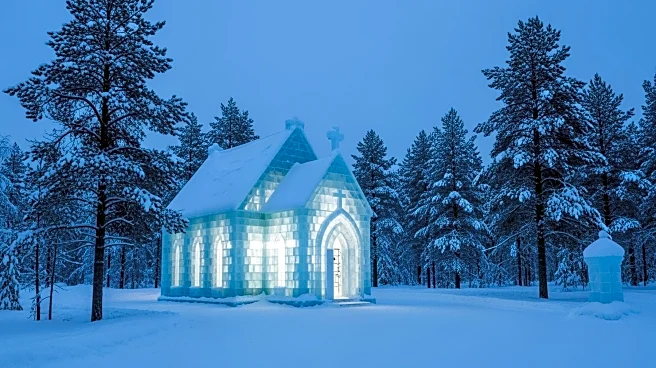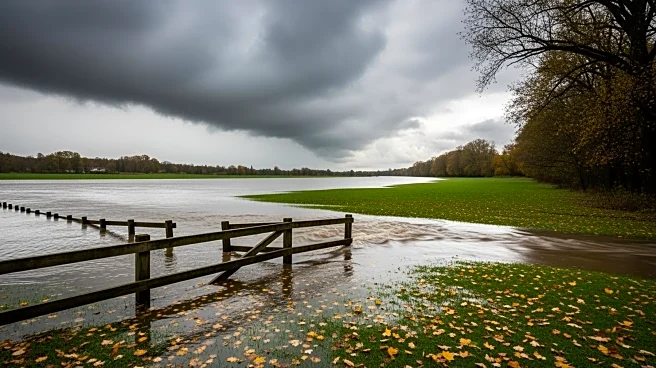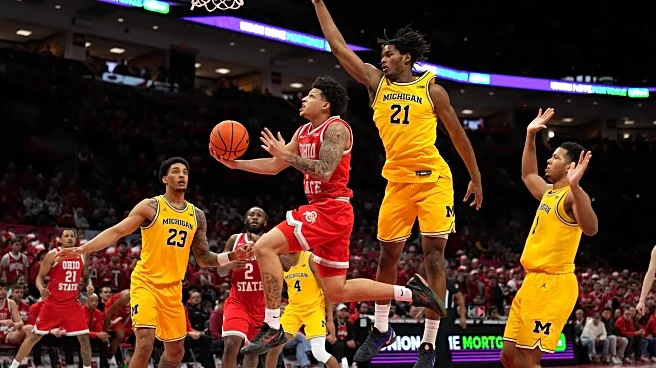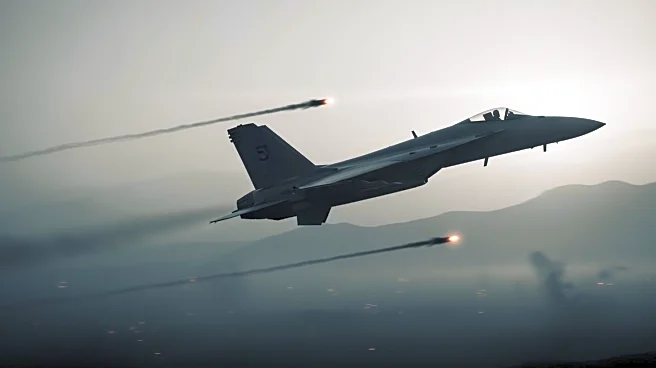What is the story about?
What's Happening?
The Perseids Meteor Shower, a popular astronomical event, is peaking tonight and tomorrow night. However, the Frosty Drew Observatory in Charlestown, Rhode Island, known for its optimal stargazing conditions, will not host public viewing events this year. The decision comes as a result of cloudy weather and a bright, gibbous moon, which are expected to obscure the visibility of the meteors. Despite the cancellation, stargazers are advised to find locations that minimize light pollution and to focus their viewing efforts between midnight and dawn. The Perseids Meteor Shower is renowned for its fast and bright meteors, often leaving trails of light and color as they pass through Earth's atmosphere.
Why It's Important?
The Perseids Meteor Shower is considered one of the best summertime celestial events, attracting both amateur and professional astronomers. The cancellation of public viewing at Frosty Drew Observatory, a key location for stargazing in Rhode Island, may disappoint many enthusiasts who rely on such events for optimal viewing experiences. The meteor shower offers a unique opportunity to witness up to 100 meteors per hour, providing a spectacular display for those interested in astronomy. The event's visibility is affected by weather conditions, highlighting the challenges faced by observatories in planning public events around natural phenomena.
What's Next?
While the Frosty Drew Observatory will not host events, individuals interested in viewing the Perseids Meteor Shower can still attempt to watch the meteors by finding locations that reduce light pollution. Stargazers are encouraged to lay on their backs with their feet oriented towards the southwest and to avoid direct moonlight. The meteor shower will continue to be visible until August 23, offering additional opportunities for viewing under better weather conditions. Observatories and astronomy clubs may provide updates or alternative viewing suggestions as the meteor shower progresses.
Beyond the Headlines
The Perseids Meteor Shower not only offers a visual spectacle but also serves as a reminder of Earth's interaction with cosmic debris, specifically from Comet Swift-Tuttle. This annual event underscores the dynamic nature of our solar system and the ongoing scientific interest in studying meteors and their origins. The cancellation of public events due to weather conditions also highlights the unpredictability of natural phenomena and the importance of flexibility in planning astronomical observations.
